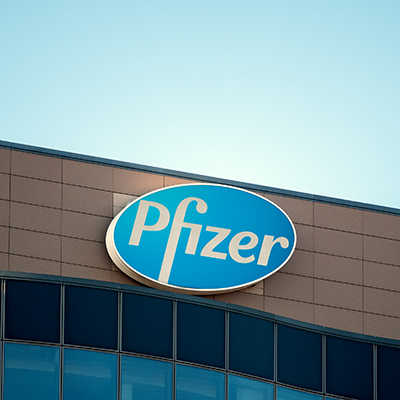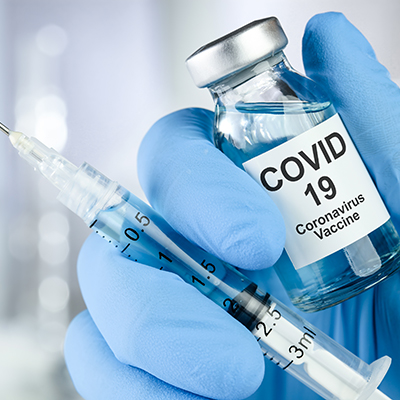December 23, 2021 -- The U.S. Food and Drug Administration (FDA) has issued an emergency use authorization (EUA) for nirmatrelvir and ritonavir tablets (which are co-packaged for oral use and sold under the brand name Paxlovid) for the treatment of mild to moderate COVID-19 in adults and pediatric patients (age 12 and older) who have tested positive for SARS-CoV-2 and who are at high risk of developing severe COVID-19, including hospitalization or death.
Nirmatrelvir is a novel main protease (Mpro) inhibitor developed by Pfizer scientists that is specifically designed to block the activity of SARS-CoV-2 Mpro, an enzyme that the coronavirus needs to replicate. The premise behind nirmatrelvir is that it can be prescribed at the first sign of infection, thereby potentially helping patients avoid severe illness.
Nirmatrelvir is co-administered with a low dose of ritonavir, an approved protease inhibitor, that helps slow the metabolism of nirmatrelvir so it remains active in the body for longer periods of time at higher concentrations to help combat the virus.
Pfizer's Paxlovid works intracellularly by binding to SARS-CoV-2 Mpro to inhibit viral replication. The company demonstrated that nirmatrelvir consistently has in vitro antiviral activity against current variants of concern. In addition, nirmatrelvir potently inhibited the Mpro associated with omicron in an in vitro biochemical assay. This finding indicates nirmatrelvir's potential to maintain robust antiviral activity against omicron, according to Pfizer. Additional in vitro antiviral studies with this variant are underway.
The FDA based its decision on clinical data from an ongoing phase II/III study, which enrolled adults with confirmed COVID-19 who are at risk of severe illness. Interim analysis revealed an 89% reduction in the risk of COVID-19-related hospitalization or death in patients who took Paxlovid compared to patients who took a placebo within three days of symptom onset. Only 0.8% of patients who received Paxlovid were hospitalized compared to 7% of patients who received a placebo and were hospitalized or died. Similar results were achieved when treatment was given within five days of symptom onset, according to Pfizer. Furthermore, treatment-emergent adverse events were comparable between Paxlovid (23%) and placebo (24%), most of which were mild.
On November 5, after the release of the interim analysis and on the recommendation of an independent data monitoring committee and in consultation with the FDA, Pfizer ceased enrollment in the study and started the EUA submission process.
Paxlovid is authorized to be administered at a dose of 300 mg (two 150 mg tablets) of nirmatrelvir with one 100 mg tablet of ritonavir, which is to be taken twice daily for five days. One carton contains five blister packs of Paxlovid -- co-packaged nirmatrelvir tablets with ritonavir tablets -- providing all required doses for a full five-day treatment course.
The FDA said that "because Paxlovid works, in part, by inhibiting a group of enzymes that break down certain drugs, Paxlovid is contraindicated with certain drugs that are highly dependent on those enzymes for metabolism and for which elevated concentrations of certain drugs are associated with serious and/or life-threatening reactions. Paxlovid is also contraindicated with drugs that, conversely, strongly induce those same enzymes, leading to the faster breakdown of nirmatrelvir or ritonavir, as reduced concentrations of nirmatrelvir or ritonavir may be associated with potentially losing virologic response and developing viral resistance."
According to the agency, Paxlovid is not authorized for the prevention of COVID-19 or for the initiation of treatment in those requiring hospitalization due to severe or critical COVID-19. The FDA further stated that the treatment is not a substitute for vaccination in individuals for whom COVID-19 vaccination and a booster dose are recommended.
Do you have a unique perspective on your research related to COVID-19? Contact the editor today to learn more.
Copyright © 2021 scienceboard.net









